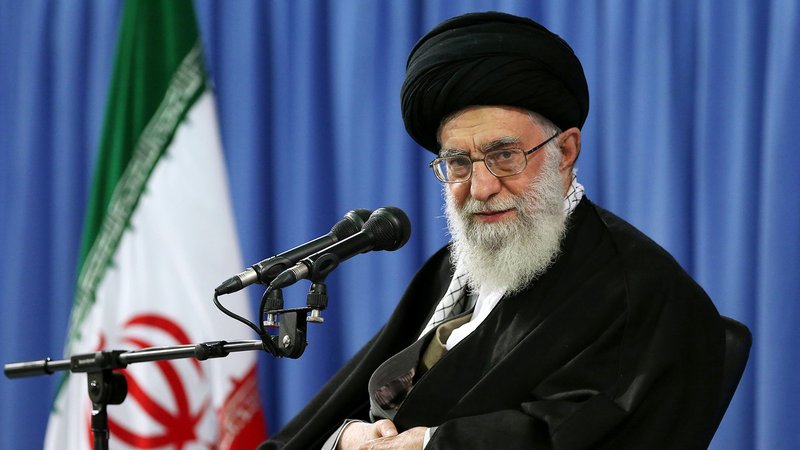Australia/Israel Review
Deconstruction Zone: Talking to Teheran
Sep 3, 2018 | Mark Dubowitz and Ray Takeyh

US President Donald Trump recently offered to meet Iranian President Hassan Rouhani without any preconditions to discuss issues of common concern. Iran’s Supreme Leader Ali Khamenei seemingly rejected this appeal, professing, “There will be no war, nor will we negotiate with the US.” In typical fashion for this Ayatollah, however, he left the door open: “The Islamic Republic can negotiate with America whenever it achieves the power to resist America’s pressure and blackmail. Today this is not the case.”
All this back and forth conceals an entirely predictable outcome given the history of US-Iran interaction: the two sides may yet be heading toward what the mullahs hope will be prolonged and inconclusive negotiations. Although it’s fashionable to denigrate Trump’s Iran policy, the President has unsettled the clerical oligarchs, intensified existing economic and political crises in the theocratic state and sparked an intense debate in Teheran about how to approach Washington.
The Islamic Republic is a sullen dictatorship drowning in corruption. Today, Iran’s revolution is just another exhausted 20th century experiment in tyranny sustained by brutal but increasingly unreliable security services. Imperialism that was to salvage the theocracy’s sagging political fortunes has instead generated burdens that the Iranian people don’t wish to bear.
Protests are now daily occurrences as the regime can neither reform itself nor offer a compelling vision for the future. The nuclear deal Rouhani struck with former US President Barack Obama was the former’s most ingenious achievement, as it preserved the essentials of Iran’s atomic infrastructure while saving the Iranian economy from imminent collapse. But Trump has dispensed with this Iranian life preserver.
Iran has a well-established playbook about how to deal with unpredictable and menacing US presidents: trap them in diplomacy. In 2002, when George W. Bush went to the Middle East looking for dragons to slay, Iran quickly suspended its nuclear program and entered talks with the Europeans. Once the storm passed and America became bogged down in the Iraqi civil war, Teheran quickly resumed its nuclear activities.
The mullahs understand that just by staying at the table, Americans usually offer up concessions. No one validated this thesis more than the Obama Administration, whose cascade of concessions culminated in a nuclear deal riddled with sunset clauses which gave Teheran patient pathways to atomic weapons.
Paradoxically, the mullahs are betting that the Trump Administration may become weaker over time, preoccupied with domestic politics. Best to entangle America in protracted diplomacy while awaiting what the regime expects will be midterm Republican losses in Congress and the return of a more flexible Democratic president to power in 2021.
Diplomacy would surely blunt the impact of US pressure. The mullahs believe they can undermine sanctions escalation by being diplomatically flirtatious and know well that America seldom disrupts negotiations with military action. Indeed, as a prelude to the talks, Iran may even resume its nuclear activities to frighten the Europeans and gain leverage by putting even more pressure on Washington to adjust its red lines.
Should negotiations begin, the Trump team should take sensible precautions to avoid the predicament of the Obama negotiators. The Administration will need to maintain its maximum-pressure campaign and negotiating demands.
In May, US Secretary of State Mike Pompeo announced his 12-point plan for an acceptable agreement that would restore diplomatic relations and commit America to encouraging massive investments in Iran’s economy. In return, among other demands, it sensibly required the Islamic Republic to abandon terrorism and forgo an indigenous enrichment capability to produce fissile material for nuclear bombs.
Any negotiations with the Islamic Republic should be time-limited and Washington must be prepared to leave the table when it confronts the usual pattern of regime bombast and mendacity.
Trump should insist on direct talks with the Supreme Leader, as he did with North Korea’s Kim Jong-un: Rouhani is a lame duck without any real influence. The Administration also should demand that Europeans join its sanctions policy targeting Iran’s ballistic-missile program, support for terrorism and human-rights abuses as a price for their participation in the talks.
The task for Trump is to learn the lessons of his predecessor and show the kind of resolution in dealing with the mullahs that Obama seldom did.
Mark Dubowitz is chief executive of the Foundation for Defence of Democracies. Ray Takeyh is a senior fellow at the Council on Foreign Relations. Reprinted from the New York Post. © Foundation for Defence of Democracies (www.defenddemocracy.org), reprinted by permission, all rights reserved.
Tags: Iran, United States






